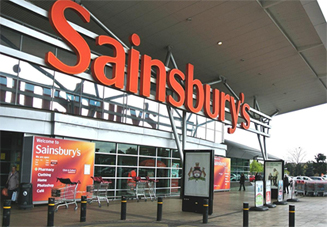Strings attached
Unite has called attention to growing numbers of employers using pay increases as an excuse to attack other benefits, following Sainsbury’s offer to staff of a wage increase that “robs Peter to pay Paul”.
The retailer drew the union’s ire after its proposal to increase pay to ÂŁ9.20 an hour for workers at 1,400 stores from September came with a number of â€strings attached’, including removing premium pay for Sunday working. The normal current rate is ÂŁ8.00 an hour.
Sainsbury’s convenor and Unite executive council member, Tracey Ashworth, said, “This kind of scenario is happening at nearly all the major retailers now, including Morrison’s, Tesco, M&S and Waitrose.”
The trend accelerated after the government raised the minimum wage from ÂŁ6.70 to ÂŁ7.20 in 2016. At the time, Unite raised the issue of car parts manufacturer Toyoda Gosei putting an end to paid breaks for workers as well as fish processor Seachill increasing the hourly wage but cutting overtime from double to time and a quarter.
B&Q workers were told the increase in the national minimum wage would be met with cuts to Sunday and bank holiday pay and bonuses, while Café Nero, ASDA and John Lewis scaled back food perks for staff.
‘Double whammy’
Ashworth said that Sainsbury’s members were initially pleased when the pay rise was announced.
“Everybody thought â€great ÂŁ9.20 an hour’. They didn’t realise that it came with strings attached. It’s not just the paid breaks and the Sunday premium, there’s alterations to the nightshift premium, skills payments and bonuses,” Ashworth explained.
“Lots of our members claim working tax credits and in-work benefits. This could potentially take them out of that because of the increase in the hourly wage. So they’d get a double whammy – not only losing their premiums and other benefits but getting taken out of tax credits as well.”
Ashworth added, “There’s a whole raft of things we’re having to give up for this ÂŁ9.20 an hour. These â€robbing Peter to pay Paul’ deals are becoming an all too common method for employers to get out of giving proper pay rises.”
Unite will be holding a consultative ballot of Sainsbury’s members across the UK from the end of March, with a recommendation to reject the deal.
Acting national officer for food and drink Bev Clarkson said the conditions of the deal mean it “will not benefit our members in the long-run”.
“There will be no further increase in salary until 2020 and given what our members have been asked to give up in return for this headline rate, the overall package doesn’t look that attractive,” Clarkson said.
Unite represents more than 12,000 members working for Sainsbury’s. In January, the company announced a managerial shake-up that could put thousands of jobs at risk – and Unite then called for no compulsory redundancies.
 Like
Like Follow
Follow


